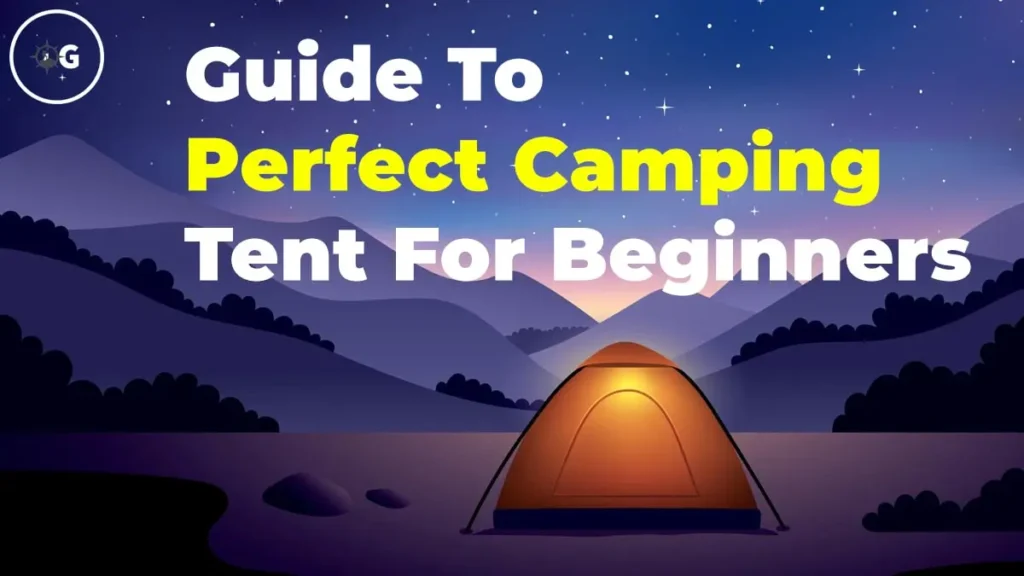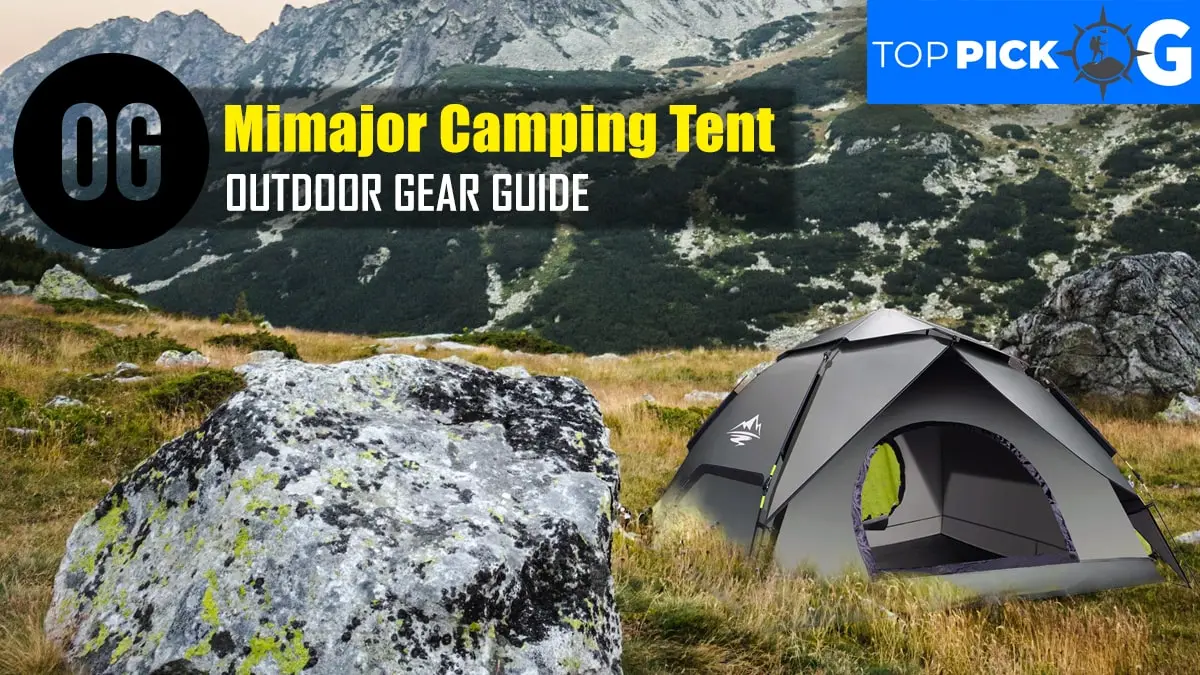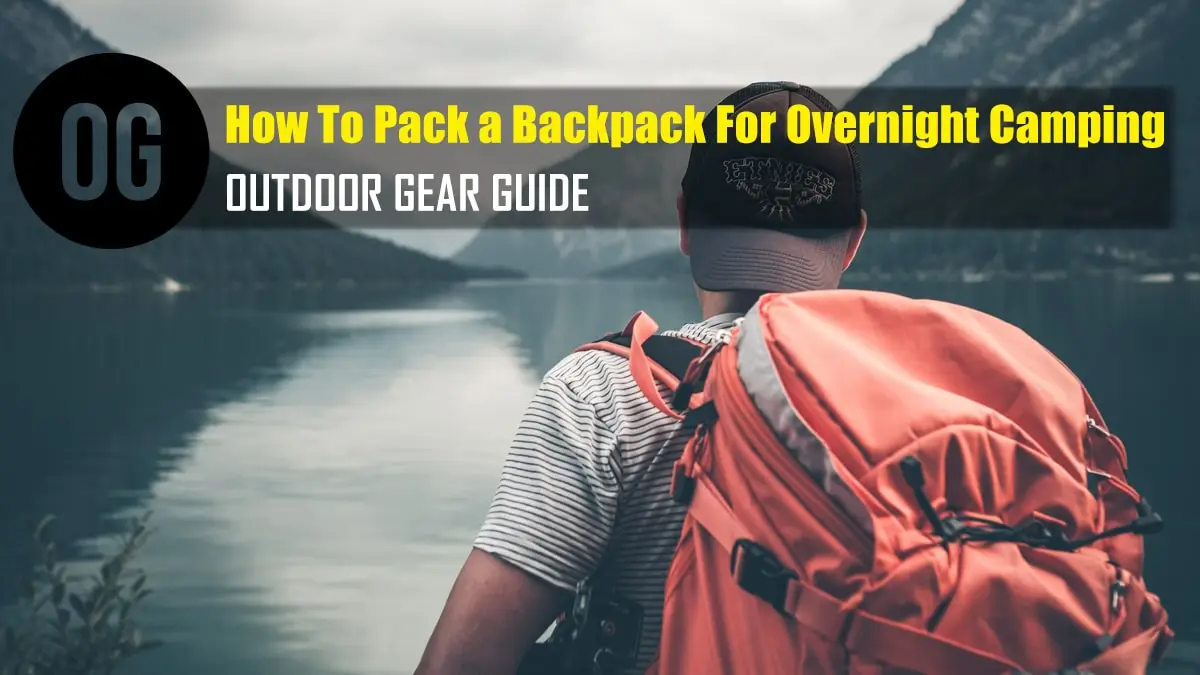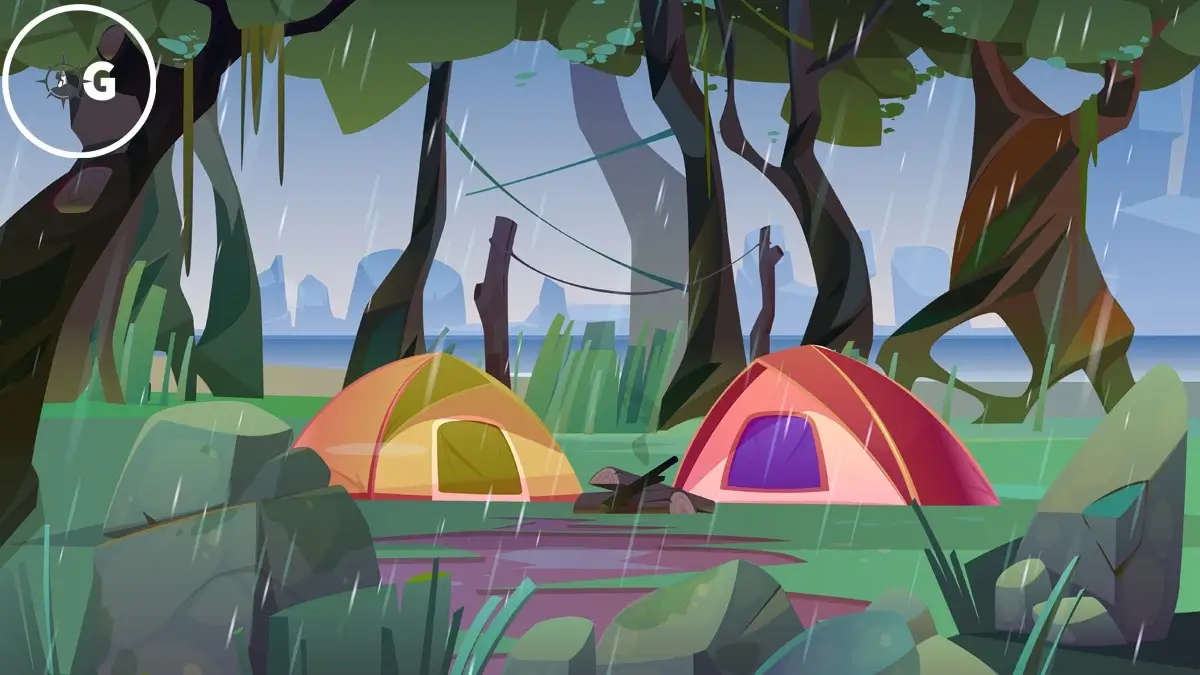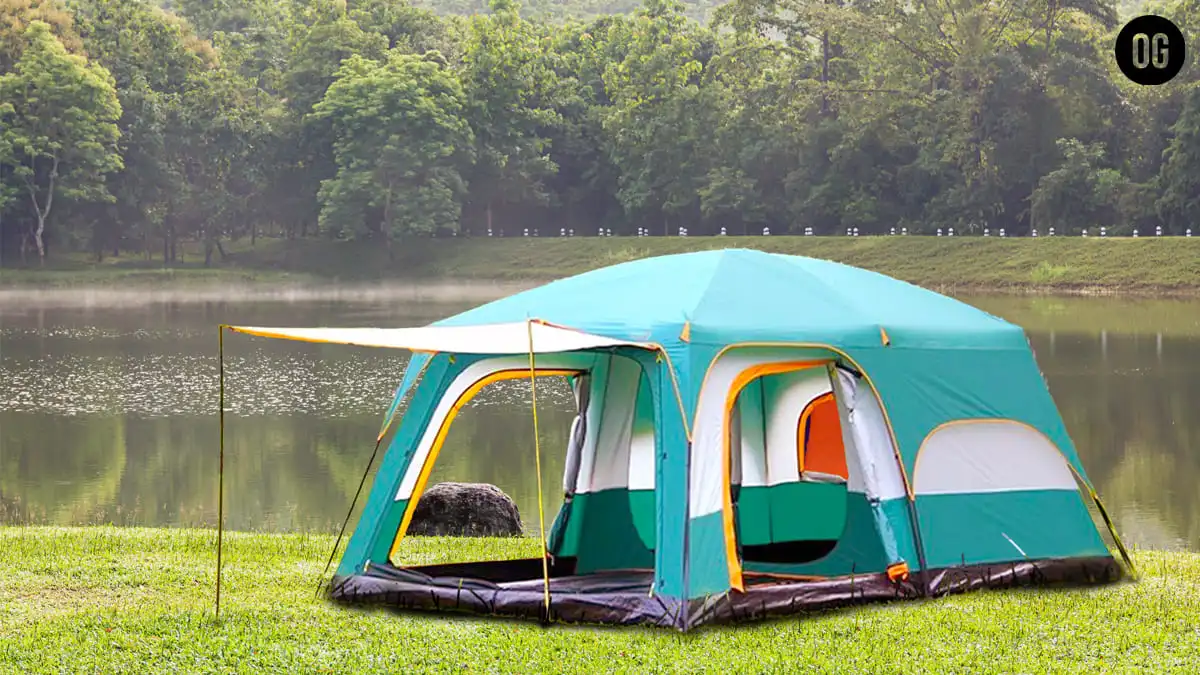Kareri Lake Tent Camping: An Unforgettable Himalayan Camping Adventure
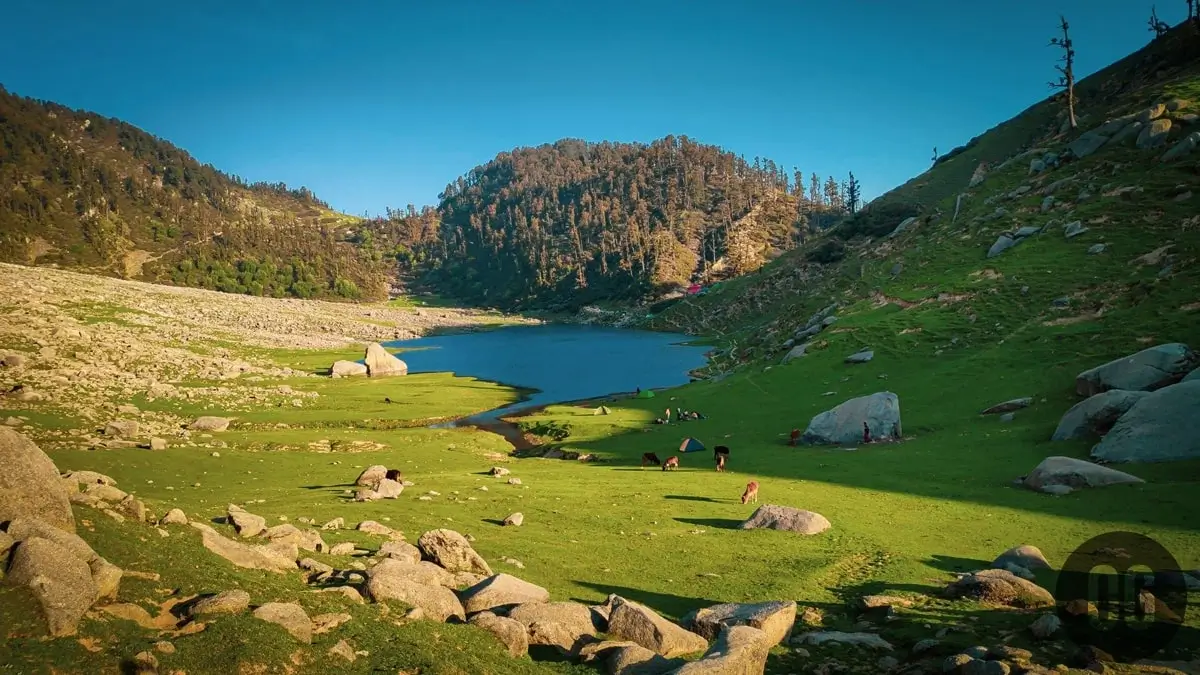
Kareri Lake in Himachal Pradesh lies as an ethereal jewel and Kareri Lake Tent Camping is one of the great adventures that every, adventurer and nature enthusiast awaits.
Not just another destination; Kareri Lake Tent Camping provides an opportunity to immerse oneself in nature’s tranquil beauty.
Table of Contents
Wake up to birdsongs announcing the dawn or snow-capped peaks as you wake surrounded by lush green meadows or snow-capped peaks…all making Kareri Lake an ideal location for tent camping!
In this guide Kareri Lake Tent Camping, we’ll explore the charms, challenges, and rewards of tent camping at Kareri Lake!
Description of the Natural Beauty
Surrounding Landscapes:
Kareri Lake is surrounded by landscapes that seem straight out of a painter’s imagination.
Towering pine forests cover hillsides, their deep green hues contrasted against snow-capped peaks looming majestically behind.
Verdant meadows carpeted with wildflowers create an exquisite tapestry, offering visitors breathtaking scenery that changes throughout the seasons.
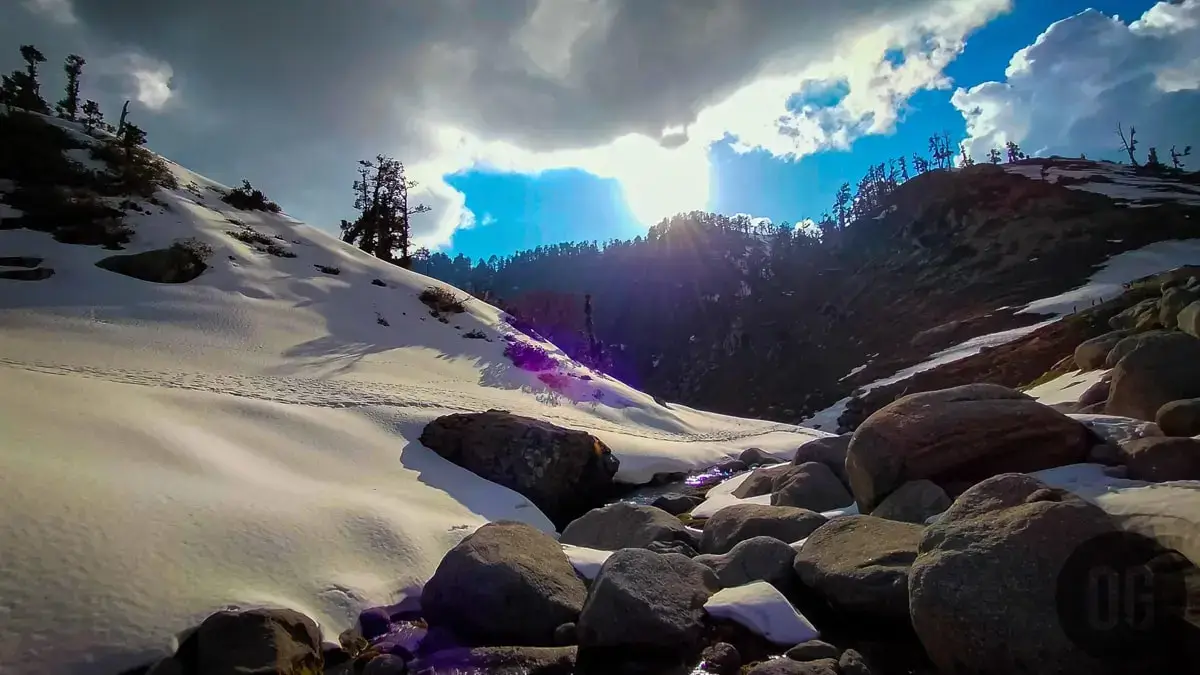
The Glacial Lake Itself:
At the heart of this picturesque setting lies Kareri Lake, an incredible glacial marvel.
Its clear green waters glimmer under the sunlight’s gentle touch; at dawn and dusk, it transforms into a mirror reflecting back peaks with remarkable clarity – creating a sublime oasis in the Himalayan foothills.
Nestled at an elevation of around 2,934 meters it serves as an idyllic retreat tucked between mountain peaks.
Unique Features that Make it an Attractive Camping Spot
Serenity and Peace: Kareri Lake’s allure lies in its serene and tranquil ambiance, unlike bustling tourist destinations that provide only temporary respite.
Here, peaceful sounds such as leaves rustling gently underfoot, birds chirping melodiously, and the gentle lapping of water onshore filling the air – creating an idyllic retreat from everyday stressors.
Offbeat Destination: Kareri Lake remains relatively untainted by mass tourism, making it an offbeat traveler’s oasis.
This isolation adds an additional charm that allows visitors to marvel at nature in all its pristine glory and form deeper ties to their environment.
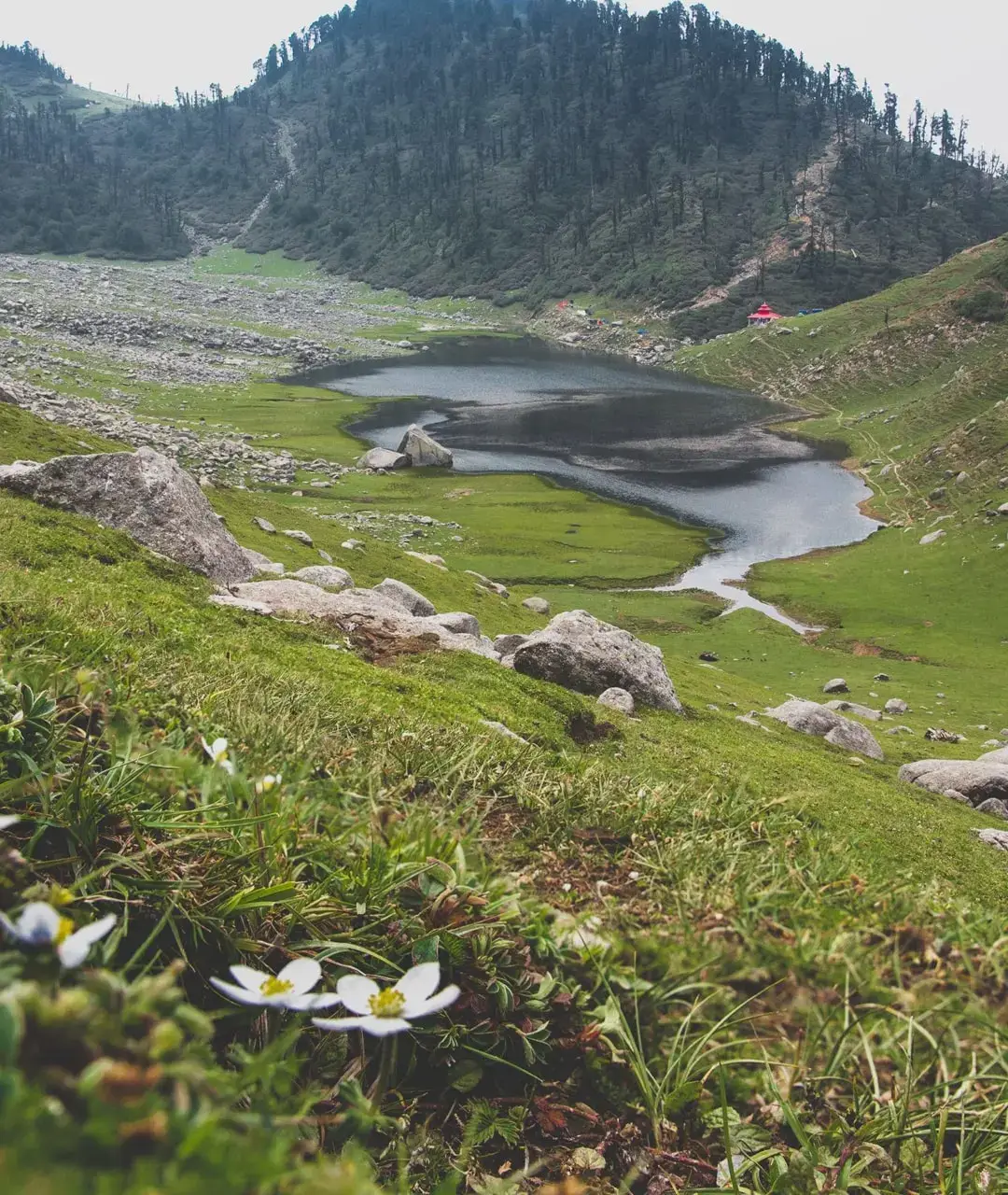
Related: 7 Best Tents For Camping And Backpacking
Trekking Opportunities: Journeying to Kareri Lake is an unforgettable adventure in itself.
The trek leading up to this pristine destination offers moderate difficulty levels, making it accessible for both beginner and experienced trekkers.
Along the way, trekkers are treated to breathtaking vistas, charming hamlets, and the excitement of conquering difficult terrain.
Finally, one arrives at Kareri Lake – an idyllic destination where one can set up camp and bask in its beauty while gazing upon the Himalayas’ magnificence.
Kareri Lake’s charms extend far beyond its physical beauty. This place of serenity and tranquility offers adventure seekers the perfect destination, offering them solace in nature’s embrace.
Trekkers seeking adventure will appreciate trekking its trails while solitude seekers find tranquillity camping out beneath starlit skies – Kareri Lake promises an indelible mark on both their minds and bodies alike!
Planning Your Kareri Lake Camping Trip
Planning is the cornerstone of an enjoyable Kareri Lake Tent Camping. From choosing an appropriate date and time to making sure that all permits and equipment are in place, preparation is key to making this Himalayan experience as memorable as possible.
Best Time to Visit
Discuss Seasons (Summer and Early Autumn): For Kareri Lake Tent Camping, the optimal times typically fall in two distinct seasons: summer and early autumn.
Summer (May to June): These months provide ideal camping weather with daytime temperatures ranging between 15degC to 20degC, making the Kareri Lake Tent Camping experience ideal.
The lush landscape features blooming flowers while its surroundings brim with vibrant hues.
Early Autumn (September to October): Kareri Lake Tent Camping during early autumn can be especially rewarding.
Fewer tourists around and still moderate temperatures (15degC to 18degC) provide ample opportunity for enjoying nature’s magnificent colors in its fall glory. Early Autumn offers perfect camping weather.
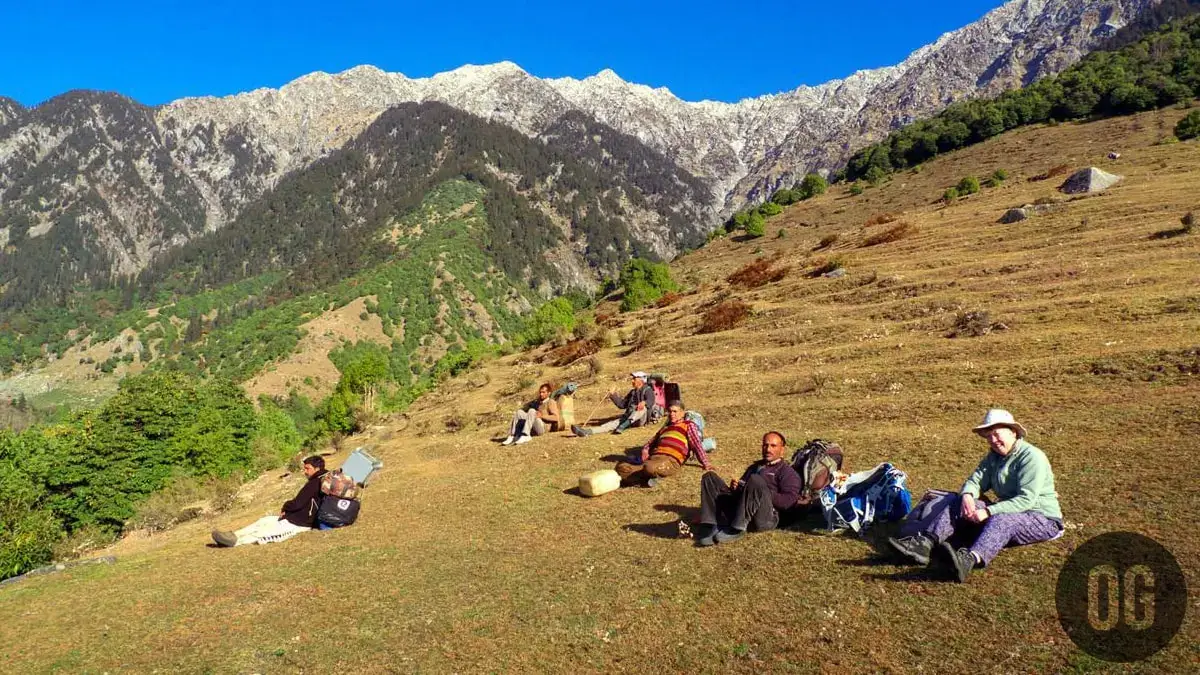
Permits and Regulations
Prioritize Responsible Camping: Before embarking on any journey, it’s essential that any necessary permits are secured. Responsible camping practices help preserve Kareri Lake’s beautiful setting.
Permits for Kareri Lake Tent Camping:
Kareri Lake Tent Camping does not require a permit; however, registration with the forest department at the Kareri Village checkpost will need to take place first – it should take no more than 5-10 minutes!
To register, you will need to provide the following information:
- Your name
- Your address
- Your phone number
- The dates of your stay
- The number of people in your group
- You will also need to pay a small registration fee.
Once registered, a camping permit will be issued that must be carried with you during Kareri Lake Tent Camping.
Leave No Trace: Adhere to the Leave No Trace principles, which promote minimal impact on natural environments.
Collect all trash before leaving an area, avoid disturbing wildlife, and camp in designated camping spots whenever available.
Regulations for Kareri Lake Tent Camping:
- Camping is only allowed in designated areas.
- Fires are not allowed.
- Be sure to pack out all of your trash.
- Leave no trace of your campsite.
- Respect the local wildlife and plants.
- Be aware of your surroundings and take precautions to avoid getting lost.
- Be quiet and respectful of other campers.
- Do not damage any trees or plants.
- Do not pollute the lake or streams.
- Do not leave any food or garbage behind.
- Be careful not to disturb the local wildlife.
- Be aware of the dangers of high-altitude camping, such as altitude sickness.
- If you are camping with a large group, be sure to register with the forest department at the Kareri Village check post.
Fitness and Preparation
Physical Fitness Requirements for Kareri Lake’s Trek: While Kareri Lake’s trek may not be particularly strenuous, it does require some level of physical fitness.
Cardiovascular Fitness: Engage in regular cardiovascular activities like walking, hiking, or jogging in order to increase endurance.
Strength Training: If traveling to uneven terrain is challenging for you, strengthening leg muscles through exercises like squats, lunges, and step-ups is recommended to prepare them.
Altitude Acclimatization: For travelers from lower altitudes traveling from Dharamshala or McLeod Ganj could help them acclimate.
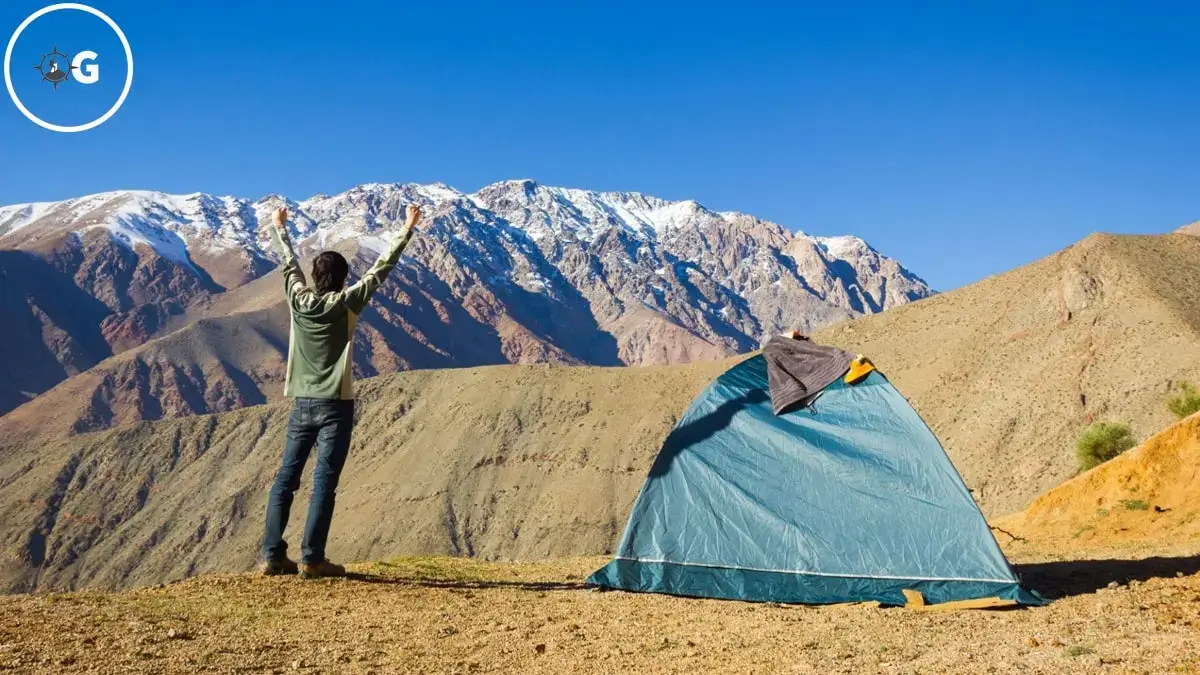
Essential Gear and Supplies: Be well-equipped for your Kareri Lake Tent Camping adventure by packing these essential items:
Tents and Sleeping Gear: Be sure to have a reliable tent, sleeping bag, and mattress pad so that you are warm and cozy at night.
Camping tents can be found for rent near Kareri Lake at several campsites located nearby, some of which provide tents and camping gear rent.
You can also bring your own camping tent to Kareri Lake.
However, it is important to note that the trek to the lake is challenging, so you will need to choose a tent that is lightweight and easy to carry.
Here are some tips for choosing a camping tent for Kareri Lake:
- Choose a tent that is lightweight and easy to carry.
- Choose a tent that is waterproof and windproof.
- Choose a tent that is big enough for everyone in your group to sleep comfortably.
- Choose a tent that has good ventilation.
- Choose a tent that has a durable floor.
- Check out our recommended best tents for camping and backpacking.
If you are renting a camping tent from Kareri Lake campsites, be sure to make reservations as early as possible, especially during peak seasons.
Cooking Equipment: If you plan to prepare your meals, bring a portable stove, cookware, and utensils.
Clothing: Layered clothing suitable for changing temperatures, including waterproof and windproof options is key – don’t forget a warm jacket and rain gear!
Footwear: For optimal hiking adventures, sturdy waterproof hiking boots that provide ankle support should be brought along as essential gear.
Food and Water: Carry enough non-perishable food items as well as methods of purifying water from lakes or streams.
Navigation tools: Maps, compasses, and GPS devices with mapping features should all be brought along on any journey.
First aid kit: An essential first aid kit to address minor injuries and ailments.
Backpacks: Backpacks should provide ample storage capacity while being comfortably worn over your shoulder to carry all your gear safely.
Cost of Camping at Kareri Lake
Kareri Lake Tent Camping costs will depend on many variables, including your choice of campsite, the time of year that you travel, and group size.
But on average you should expect to spend between INR 500-1000 per night when camping at this popular tourist spot.
Here are a few factors that could influence the cost of camping at Kareri Lake:
Campsite: Certain campsites can be more costly than others and their cost depends on factors like toilets, showers, and electricity available on-site.
Time of year: Kareri Lake Tent Camping during peak seasons (April through June and September through October) can be more costly.
Size of group: Group size can also have an effect, as larger groups often receive discounts on camping rates.
Budget camping enthusiasts can save money by camping at less expensive campsites during off-peak seasons or cooking their own food and bringing their own camping gear.
Here are some tips for saving money on Kareri Lake Tent Camping:
- Camp at a less expensive campsite.
- Camp during the off-season.
- Cook your own food.
- Bring your own camping gear.
- Bargain with campsite owners.
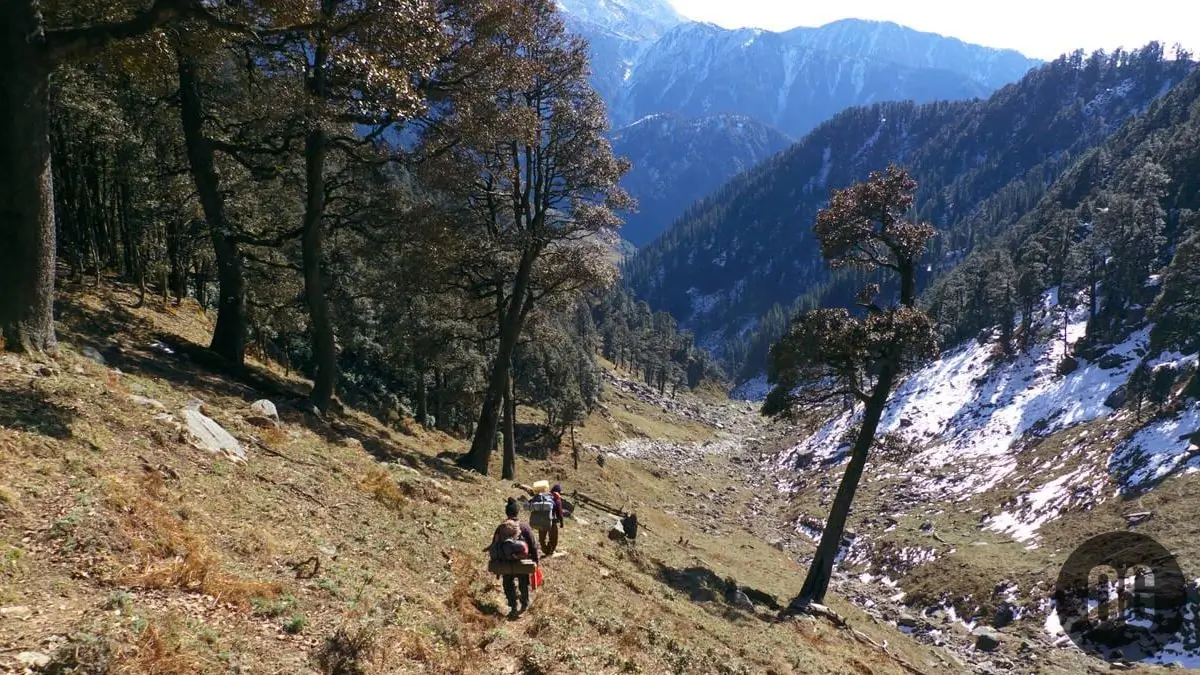
The Journey to Kareri Lake
A journey to Kareri Lake can be described as two distinct parts: getting to the trailhead and the trek itself.
Both offer unique experiences and challenges along their course before arriving at its stunning beauty amidst the Dhauladhar Ranges.
Getting to the Trailhead
Starting Point and Accessibility: Most journeys to Kareri Lake begin from either Dharamshala or McLeod Ganj in Himachal Pradesh – serving as gateways leading to its trailhead.
Dharamshala: Being the largest of the two towns, Dharamshala boasts excellent road links and amenities for travelers to take advantage of before setting out on their Kareri Lake journeys.
McLeod Ganj: An idyllic Tibetan town just outside Dharamshala, McLeod Ganj is famous for its Tibetan culture and is home to the Dalai Lama – making it an excellent destination to explore before or after your trek.
To reach the trailhead, transportation will need to be arranged from Dharamshala or McLeod Ganj to Kareri Village.
The journey is scenic but can sometimes be bumpy; from Kareri, trekking trails begin.
The Trek Itself
Difficulty Level: Kareri Lake trek is considered moderate in difficulty, making it suitable for novice and experienced trekkers alike. Here’s what to expect on this adventure:
Terrain: This trail winds its way through an array of terrain, such as dense forests, rocky paths, and meandering streams. Some sections can be steep, so trekking shoes with ankle support are necessary.
Altitude Gain: On this trek, you’ll reach an altitude of approximately 2,934 meters (9,625 feet).
While not extreme in terms of altitude gain, altitude can still affect some individuals and it is essential to acclimatize.
Duration: The journey generally requires around 3-4 days of round-trip trekking, depending on your pace and how much time is spent at the lake.
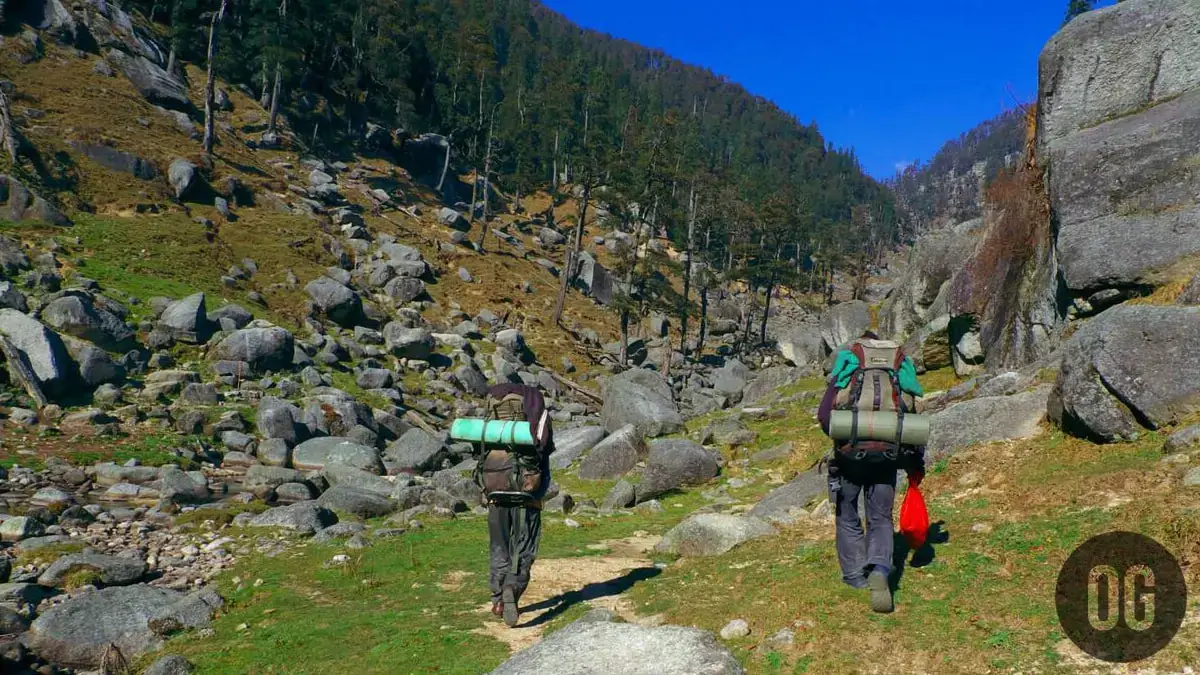
Noteworthy Landmarks Along the Way:
Kareri Lake journey is full of natural splendors and cultural highlights that create an unforgettable journey:
Kareri Village: At the start of your trek lies Kareri Village – it offers an opportunity to observe local life while meeting friendly villagers who may help along the way.
Gushing Streams: As you venture deeper into the forest, you’ll encounter numerous pristine streams and small waterfalls – providing refreshing spots to take a rest and refill your water bottles.
Kareri River: Your trek follows the course of the Kareri River, crossing it several times over sturdy bridges and stepping stones.
Rhododendron Forests: Depending on the season, some trails lead through vibrant rhododendron forests for an extra burst of color on your adventure!
Riot of Wildflowers: Meadows are transformed by an abundance of wildflowers during the summer months, creating an impressive visual effect.
Shepherd’s huts: Additionally, along the trail, you might come across shepherd’s huts where local shepherds graze their livestock during that period.
Minkiani Pass: Your trek culminates at Kareri Lake, nestled beneath the magnificent Minkiani Pass.
Here, a breathtaking panorama of snow-clad peaks surrounds this idyllic lake that makes every step worthwhile.
Journeying to Kareri Lake is more than a means to an end: it’s an adventure full of natural splendor and cultural insight.
No matter your experience level or interests, the path leading towards Kareri Lake promises an enriching journey.
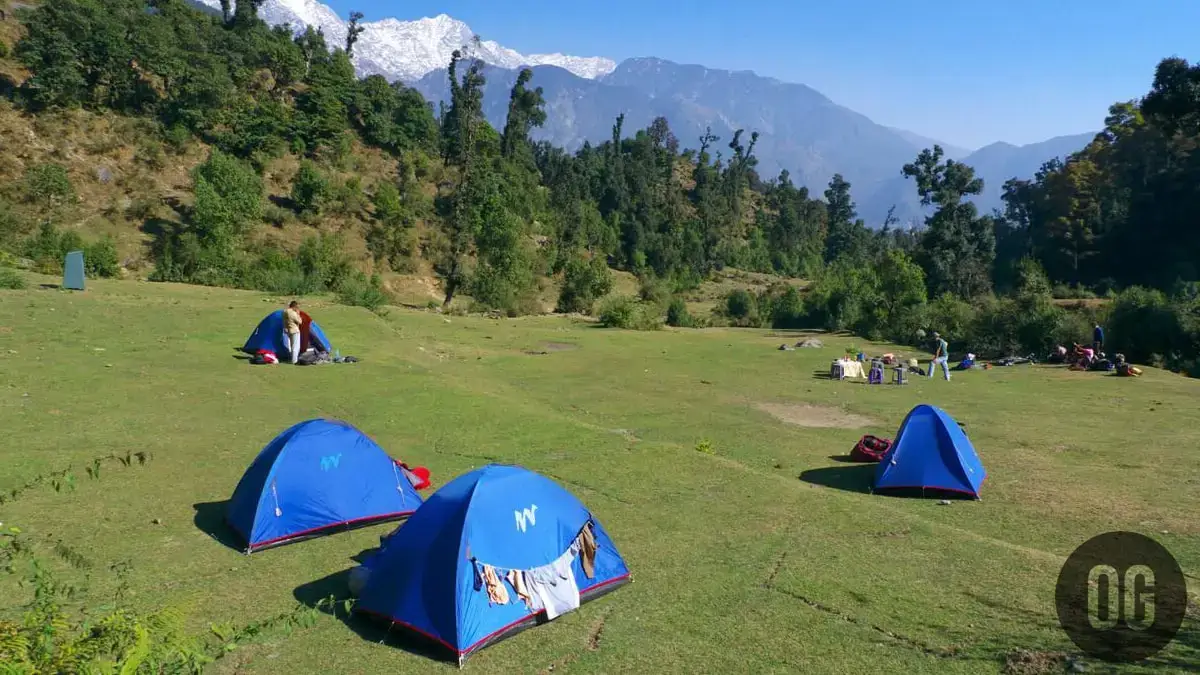
Camping at Kareri Lake
Kareri Lake Tent Camping provides an exciting opportunity to immerse yourself in the unspoiled Himalayan wilderness.
When setting up camp amidst breathtaking landscapes, be prepared for an authentic Himalayan experience while taking responsibility for safeguarding its beauty.
Camping Facilities: Kareri Lake isn’t known for luxurious camping facilities; rather it provides more of a back-to-nature experience.
There may still be basic amenities available depending on the season and regulations in effect during your visit, which could include:
Tented Accommodations: Some operators may provide temporary camps with tents available for rental, often including basic bedding.
Food Stalls: To meet trekking season’s peak demand for basic foods like tea, noodles, and snacks local vendors often set up food stalls offering basic refreshments like these items for sale.
Toilet Facilities: While your campsite may offer basic pit toilets or makeshift facilities, it’s wise to investigate their availability in advance and be prepared in case they’re not operational during your visit.
Weather Considerations:
Preparing for Cold Temperatures: Kareri Lake lies at an elevated altitude and even in summer and early autumn it can get very chilly during the nighttime hours. Here’s how you can prepare:
Layered Clothing: Pack layers of thermal layers, an insulated jacket of good quality, and waterproof and windproof outer layers for extra warmth.
Sleeping Gear: Be sure your sleeping bag meets cold temperature rating specifications, and consider investing in an extra warm sleeping bag liner to maximize warmth.
Headgear and Gloves: Don’t forget to pack a beanie or hat to keep your head warm, and gloves to protect your hands from cold.
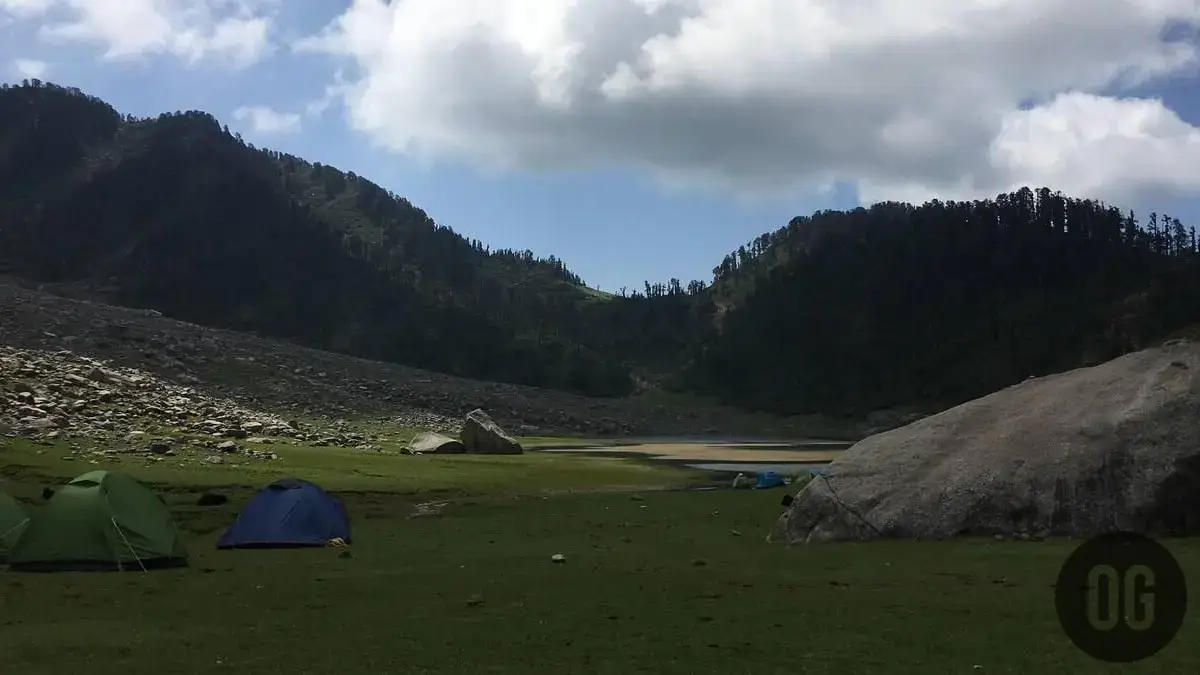
Environmental Responsibility:
Leave No Trace Principles: Responsible camping is integral to maintaining Kareri Lake’s pristine beauty and adhering to Leave No Trace principles is key.
Pack Out All Trash: Bring all of your trash with you, and dispose of it properly when returning to town.
Camp In Designated Areas: If available, use designated camping areas to reduce environmental impact.
Make Use of Biodegradable Soap: When washing dishes or yourself, be sure to use biodegradable soap at least 200 feet from any lake or stream.
Importance of Preserving the Natural Beauty:
Kareri Lake should be maintained in its natural state:
Respect Wildlife: Do not interfere with or feed wildlife. Simply observe them from a safe distance and refrain from making loud noises.
Stay on Marked Trails: When walking trails or using marked routes, follow established trails to reduce soil erosion and damage to fragile ecosystems.
Reduce Campfire Impact: Adhere to local regulations regarding campfires by opting for portable stoves instead.
Kareri Lake Tent Camping provides an amazing opportunity to experience nature in its purest Himalayan form.
By being environmentally aware and prepared, camping at this spectacular Himalayan locale will be both memorable and responsible, leaving its natural splendor intact for future generations to enjoy.
Experiencing Kareri Lake
Kareri Lake offers more than just a picturesque destination; it’s an immersive experience that connects you deeply to nature.
Kareri Lake Tent Camping allows you to engage in various activities, find inner peace, and ensure your own safety in nature’s element.
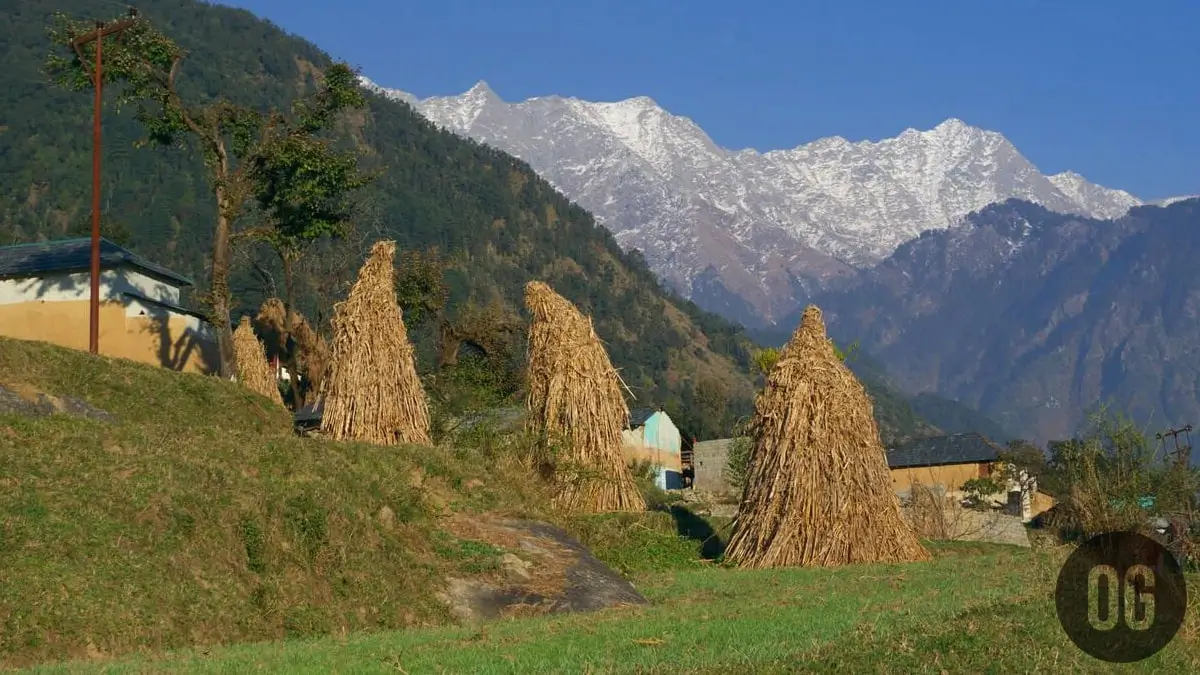
Activities Around the Lake
Nature Photography: Kareri Lake and its surroundings boast breathtaking landscapes, from the blue waters of its waters to the towering peaks of the Dhauladhar Range.
Photography enthusiasts will find endless opportunities to capture nature’s glory; early morning or late evening are particularly effective times to capture how light plays upon shadows across the landscape.
Birdwatching: Kareri Lake is home to an abundance of bird species, especially during summer when migratory species visit from abroad.
Bring along binoculars and a field guide in order to observe them in their natural environment – make sure to look out for colorful Himalayan Monals or thrushes that could pass by!
Meditation and Relaxation: Kareri Lake’s tranquil atmosphere makes it the ideal location for meditation and relaxation.
Find yourself a comfortable spot by the lakeshore or amongst surrounding meadows, close your eyes, take deep breaths, and let its serene atmosphere soothe your soul.
The sound of rustling leaves combined with the lapping of waters can create an ambiance conducive to deep concentration and focus that’s hard to match elsewhere.
Staying Safe
Safety Precautions During Camping: At Kareri Lake Tent Camping, your safety should always come first:
Campsite Selection: Choose a safe and level campsite away from the water’s edge in order to avoid accidental slips, as well as make sure your tent is secured to avoid accidents from unintended movement or shifting of ground cover.
Campfire Safety: When camping fires are allowed and conditions allow, always maintain a safe distance and have water or sand handy in order to extinguish it quickly and safely.
Food Storage: To reduce wildlife visits at your campsite, store food in airtight containers or bear canisters to keep away wildlife.
Weather Awareness: Be informed about the forecast and prepared for sudden weather shifts such as rain or cold temperatures.
Emergency Contacts and Procedures
While Kareri Lake may seem remote, it’s wise to be prepared for emergencies:
Emergency Contacts: It is wise to create a list of emergency contacts such as local authorities, medical facilities nearby, and any trekking or camping organizers that you might associate with.
Communication: Take along a fully charged mobile phone but be mindful that reception in the mountains may vary greatly.
Consider carrying either a satellite phone or personal locator beacon in case an emergency situation arises and they provide emergency communication solutions.
First Aid: Be prepared with a well-stocked first aid kit and know how to use it properly for minor injuries; for more serious incidents or illnesses seek immediate medical attention.
Keep in mind that Kareri Lake Tent Camping can be unpredictable, and to stay safe you must follow safety precautions.
Have emergency plans in place to ensure a positive camping experience with confidence knowing you are taking precautionary steps for your own wellbeing in this natural paradise.
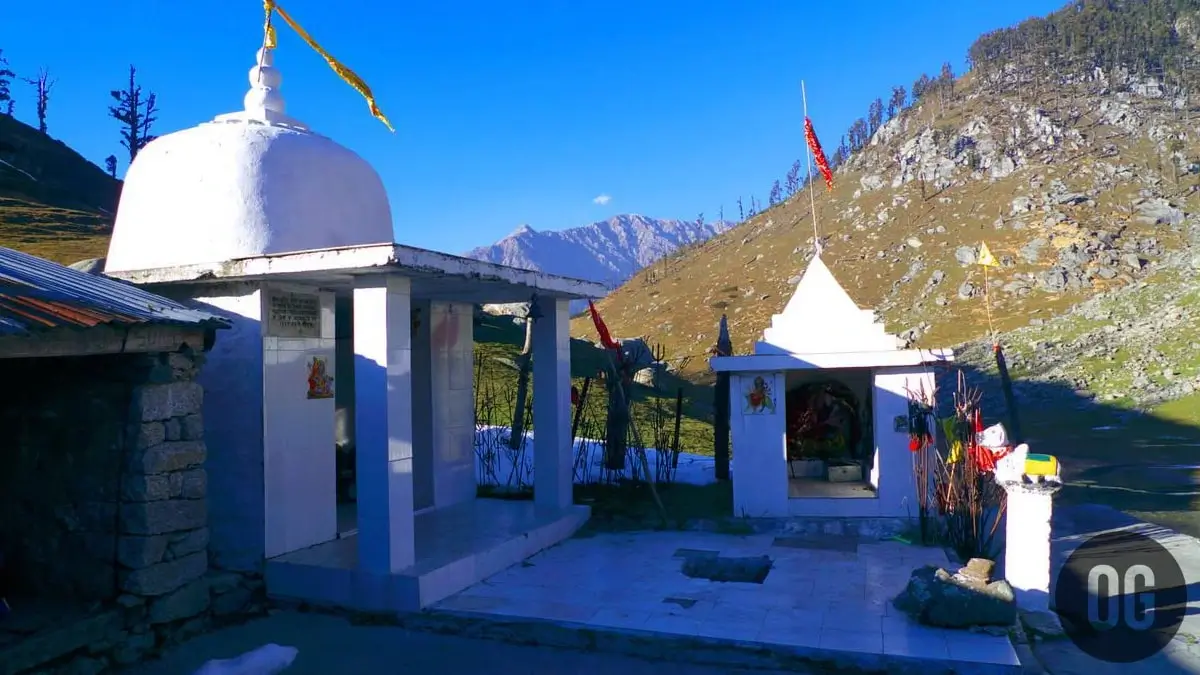
The Rewards of Kareri Lake Camping
Kareri Lake Tent Camping is more than just physical travel or scenic landscapes; it’s an unforgettable adventure filled with rewarding personal experiences, connections to nature, and special memories and encounters.
Personal Experiences and Stories
Kareri Lake Tent Camping allows for an abundance of personal experiences and stories:
Triumph Over Challenges: Trekking to Kareri Lake can be a true test of endurance and determination, providing a great opportunity for personal triumph along the way. Overcoming physical obstacles becomes part of your own personal narrative!
Bonding Moments: Sharing campfires, meals or conversations under the starlit Himalayan skies with other trekkers and campers can lead to long-lasting friendships and shared stories that form lasting ties between individuals.
Interact with Locals: Interactions with the warm villagers of Kareri and chance encounters with shepherds on the hills offer glimpses into local culture, providing unforgettable cultural stories to bring back home with you.
Nighttime Tales: Kareri Lake Tent Camping offers the ideal setting to create unforgettable stories around a campfire, creating lasting memories and creating lasting friendships.
Connection with Nature and Oneself
Kareri Lake’s unspoiled beauty fosters an intimate connection between nature and inner being:
Nature’s Lap: The serenity provided by its environs, birdsongs, and the gentle ripple of lake waters create a feeling of serenity that often gets lost amidst daily hustle and bustle.
Soulful Reflection: Kareri Lake Tent Camping provides moments of solitude and quiet for reflection and self-discovery, providing space to find clarity and gain perspective as you consider life’s deeper questions.
Mindful Living: Everyday routines become simpler as you focus on essentials like food and shelter while remaining mindful in each moment of daily life.
This mindfulness often has ripple effects throughout your days; reminding you to appreciate small joys.
Unique Memories and Encounters
Kareri Lake Tent Camping offers you a unique camping experience and creates unforgettable memories and encounters:
The Lake’s Allure: When first gazing upon Kareri Lake amongst its towering peaks, it leaves an indelible memory in your heart forever.
Its tranquil waters reflecting the magnificence of the Dhauladhar Range will leave a mark that remains with you forever.
Birdwatcher Delight: Birdwatchers will relish every minute they spend discovering and studying Himalayan bird species, creating unforgettable encounters to add to their list of treasured memories.
Starry Nights: Kareri Lake offers clear skies unpolluted by pollution that offer a spectacular display of stars – creating an unforgettable and magical stargazing experience, especially on moonless nights.
Unpredictable Adventures: Mountain adventure can bring unexpected encounters with wildlife, meteor showers, and snowfall–making lasting memories along the way.
Kareri Lake Tent Camping provides rewards that transcend physical travel alone. They include stories you share, deep connections made to nature and yourself, unique memories made, and encounters that enrich lives long after leaving this Himalayan haven.
Kareri Lake is more than a destination – it provides inspiration, reflection, and wonderment that makes the experience rewarding for every camper and adventurer who visits it!
Conclusion
Kareri Lake Tent Camping can be an unforgettable journey, providing personal stories, a deepened connection with nature, and lifelong memories.
Beyond its breathtaking landscapes and magnificent mountain peaks, Kareri Lake Tent Camping fosters a greater appreciation of everyday life and Himalayan splendor – truly an experience worth cherishing!
FAQs Kareri Lake Tent Camping
How difficult is Kareri Lake Trek?
The Kareri Lake Trek in Himachal Pradesh, India, is considered a moderately difficult trek. It covers 13-14 km through forests, rocky terrain, and river crossings before crossing back over with altitude gain and changing weather conditions; yet still manageable by most moderately fit trekkers.
How many days is the Kareri Lake trek?
The Kareri Lake trek typically requires 2-3 days for completion, though most trekkers opt for a two-day itinerary, taking one day to climb to the lake and another to descend. Some may opt for three days as an extension and exploration opportunity.
What is the best time to visit Kareri Lake?
Kareri Lake should be visited from May to June and September to November for ideal conditions, with warm and sunny temperatures, clear skies, lush landscapes, and pleasant trekking conditions that allow one to truly appreciate its natural beauty.
Can we swim in Kareri Lake?
Swimming in Kareri Lake may be possible, though not recommended due to its high altitude and cold temperatures – even during summer, water temperatures can drop low enough that swimming poses serious health risks for swimmers.
What is the temperature of the Kareri trek?
Temperatures during a Kareri Lake trek can vary considerably depending on the time of year and weather conditions. From May to June, daytime temperatures typically range from 15degC to 25degC while during November-March they can drop as far as 5degC-10degC, even potentially leading to snowfall!
How far is the Kareri Lake trek from Dharamshala?
Kareri Lake Trek in Himachal Pradesh, India is approximately 9-10 kilometers from Dharamshala and offers an ideal trekking destination, typically taking between one and two hours by road from this popular trekking hub to reach its starting point.
What is Kareri famous for?
Kareri Lake is a stunning high-altitude body of water situated within the Dhauladhar Range of the Indian Himalayas and a popular trekking destination known for its breathtaking natural beauty and alpine landscapes, making it a prime base from which to explore this magnificent mountain wilderness.
Which river flows in Kareri Lake?
The Nyund River flows close to Kareri Lake in Himachal Pradesh, India, providing significant water for this lake. Trekkers frequently traverse this river on their journeys towards Kareri. The lake itself can be found within the Dhauladhar Range of the Himalayas in Himachal Pradesh.
Which is the most difficult trek in Himachal Pradesh?
Treks vary in difficulty depending on individual experience and fitness levels. Some of Himachal Pradesh’s more difficult treks include Pin Parvati Pass Trek, Bara Bhangal Trek, and Manimahesh Kailash Trek; each involves high altitudes, steep ascents, and rugged terrain – making these some of the toughest challenges available in this region.
Which is the longest trek in India?
Kang La, known for offering one of the longest glacier walks, delights trekkers with 90 kilometers of varied landscapes and numerous unexpected challenges. Its complex terrain and unique set of difficulties make this trek unforgettable and essential to our list.

